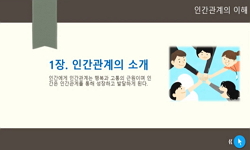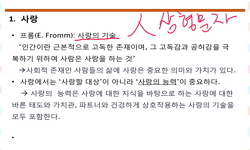본 연구의 목적은 아동의 지각된 부부갈등이 친구관계에 미치는 효과와 지각된 부부갈등이 친구관계에 미치는 영향을 자기노출과 자아존중감이 조절해 주는지를 확인하는데 있다. 초등학...
http://chineseinput.net/에서 pinyin(병음)방식으로 중국어를 변환할 수 있습니다.
변환된 중국어를 복사하여 사용하시면 됩니다.
- 中文 을 입력하시려면 zhongwen을 입력하시고 space를누르시면됩니다.
- 北京 을 입력하시려면 beijing을 입력하시고 space를 누르시면 됩니다.
아동이 지각한 부부갈등, 자아존중감 및 자기노출이 친구관계의 질에 미치는 영향 = Effects of Children's Perception of Interparental Conflict, Self-esteem and Self-disclosure on Quality of Friendship
한글로보기부가정보
국문 초록 (Abstract)
본 연구의 목적은 아동의 지각된 부부갈등이 친구관계에 미치는 효과와 지각된 부부갈등이 친구관계에 미치는 영향을 자기노출과 자아존중감이 조절해 주는지를 확인하는데 있다. 초등학생 5, 6학년 285명이 조사에 참여하였다. 부부갈등은 Grych, Seid 및 Fincham(1992)의 아동이 지각하는 부부갈등 척도(The Children's Perception of Interparental Conflict Scale: CPIC)로, 자기노출은 박선영(1998)의 자기노출척도로, 자아존중감은 황찬구(1989)의 자아존중감 척도로 측정하였다. 친구관계는 관계만족 요인과 비대립관계의 두 요인으로 구분하였다.
부부갈등, 자기노출, 자아존중감이 친구관계에 영향을 미치는지 알아보기 위해, 이들 세 변수를 독립변인으로, 친구관계의 두 요인 각각을 종속변인으로 한 2번의 다중회귀분석이 수행되었다. 관계만족을 종속변인으로 한 다중회귀분석 결과, 자기노출과 자아존중감이 관계만족에 정적으로 유의하게 영향을 주는 것으로 나타났다. 비대립관계를 종속변인으로 한 다중회귀분석 결과, 지각된 부부갈등은 부적으로, 자아존중감은 정적으로 비대립관계에 유의하게 영향을 주는 것으로 나타났다.
지각된 부부갈등이 친구관계에 미치는 영향을 자기노출과 자아존중감이 조절해 주는지 알아보기 위해 2원 변량분석을 실시하였다. 부부갈등과 자기노출을 독립변인으로, 관계만족을 종속변인으로 한 2원 변량분석 결과, 상호작용효과가 유의하게 나타나 가설 1을 지지하였다. 자기노출이 낮은 조건에서는 지각된 부부갈등이 낮은 조건이 높은 조건에 비해 관계만족이 더 높게 나타났으나, 자기노출이 높은 조건에서는 낮은 조건에 비해 관계만족이 높고 지각된 부부갈등의 높고 낮음에 따라 유의한 차이를 보이지 않았다. 부부갈등과 자기노출을 독립변인으로, 비대립관계를 종속변인으로 한 2원 변량분석 결과, 지각된 부부갈등이 낮은 조건이 높은 조건에 비해 비대립관계가 유의하게 더 높게 나타나는 지각된 부부갈등의 주효과만 유의하게 나타났다. 비대립관계가 종속변인인 경우는 가설 1이 지지되지 않았다.
지각된 부부갈등이 친구관계에 미치는 영향에서 자아존중감의 조절효과를 검증한 결과는 다음과 같다. 부부갈등과 자아존중감을 독립변인으로, 관계만족을 종속변인으로 한 2원 변량분석 결과, 자아존중감이 높은 조건이 낮은 조건에 비해 관계만족 및 비대립관계가 모두 유의하게 더 높게 나타나는 자아존중감의 주효과만 유의하게 나타나 자아존중감의 조절효과에 대한 가설 2는 지지되지 않았다. 추후연구방향과 본 연구의 시사점 및 제한점이 논의되었다.
다국어 초록 (Multilingual Abstract)
The purposes of this study were 1) to examine the effect of children's perception of interparental conflict on friendship and 2) to identify the moderation effect of self-disclosure and self-esteem on the relationship between the children's perception...
The purposes of this study were 1) to examine the effect of children's perception of interparental conflict on friendship and 2) to identify the moderation effect of self-disclosure and self-esteem on the relationship between the children's perception of interparental conflict and friendship. Participants were 285 5th and 6th graders. The children's perception of interparental conflict was measured by Grych, Seid and Fincham(1992)'s scale, and self-disclosure was measured by Park(1998)'s scale. Self-esteem was assessed by Hwang(1989)'s scale. Friendship was divided by two factors(i.e., relation satisfaction and non-conflict). Two separate multiple regression analysis was performed to examine the effects of the perception of interparental conflict, self-disclosure and self-esteem on each factor of friendship. The results of the multiple regression analysis which used relation satisfaction as a criterion revealed that self-disclosure and self-esteem had significantly positive effect on relation satisfaction factor. The results of the multiple regression analysis which used non-conflict as a criterion revealed that self-esteem had significantly positive and perception of interparental conflict had significantly negative effect on non-conflict factor. Two-way analysis of variance was performed to identify the moderation effect of self-disclosure and self-esteem on the relationship between the children's perception of interparental conflict and friendship. The results of the two-way analysis of variance which used the perception of interparental conflict and self-disclosure as independent variables and relation satisfaction as a dependent variable showed significant interaction effect and the results supported the hypothesis 1. That is, in low self-disclosure condition, children who perceived lower interparental conflict showed higher relation satisfaction than those who perceived higher interparental conflict. However, in the high self-disclosure condition, there was no significant difference in relation satisfaction regardless of the level of the perception of interparental conflict. The results of the two-way analysis of variance which used the perception of interparental conflict and self-disclosure as independent variables and non-conflict as a dependent variable showed significant main effect of the perception of interparental conflict and non-significant interaction effect. That is, when the dependent variable was non-conflict, the hypothesis 1 was not supported. In the two separate two-way analysis of variance which used the perception of interparental conflict and self-esteem as independent variables and relation satisfaction and non-conflict as dependent variables respectively showed significant main effect of self-esteem and non-significant interaction effect. These results demonstrated that hypothesis 2 was not supported. Limitations of the study and directions for future study were discussed.
목차 (Table of Contents)
- Ⅰ. 서론 1
- 1. 연구의 필요성 및 목적 1
- 2. 아동이 지각한 부부갈등 4
- 3. 자기노출 8
- 4. 자아존중감 10
- Ⅰ. 서론 1
- 1. 연구의 필요성 및 목적 1
- 2. 아동이 지각한 부부갈등 4
- 3. 자기노출 8
- 4. 자아존중감 10
- 5. 친구관계 11
- 6. 아동이 지각한 부부갈등과 친구관계 13
- 7. 자기노출과 친구관계 15
- 8. 자아존중감과 친구관계 16
- 9. 연구과제 16
- Ⅱ. 연구방법 및 절차 18
- 1. 조사대상자 18
- 2. 측정도구 19
- 3. 자료분석 21
- Ⅲ. 결과 22
- 1. 요인의 신뢰도 22
- 2. 부부갈등, 자기노출, 자아존중감 및 친구관계간의 관계 23
- 3. 부부갈등과 자기노출이 친구관계에 미치는 효과 25
- 4. 부부갈등과 자아존중감에 따른 친구관계 30
- Ⅳ. 논의 34
- 참고문헌 37
- Abstract 42
- 부록 44










